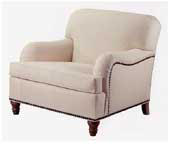
Water | Resources
Gardens Alive!
Dedicated to the biological control of garden pests, they supply beneficial insects, composting products, fertilizers, pest controls, tools, and other products for organic gardening and lawn care.
Furnature
 “An extensive line of chairs, sofas, loveseats, and ottomans for people with Multiple Chemical Sensitivity…Many healthy, ecology conscious individuals are also purchasing our products because they prefer to live in a clean, unpolluted environment.” These are top quality products with classic designs made by a family-owned company with third- and fourth-generation furniture makers. They will even make custom pieces to your design specifications. All pieces are made with 100% organic cotton barrier cloth, frames made from kiln-dried, untreated, hard rock maple, water-based glues, chemical-free wood finishes and organic or non-organic natural fiber upholstery fabrics (pre-washing option to remove fabrics finishes available).
“An extensive line of chairs, sofas, loveseats, and ottomans for people with Multiple Chemical Sensitivity…Many healthy, ecology conscious individuals are also purchasing our products because they prefer to live in a clean, unpolluted environment.” These are top quality products with classic designs made by a family-owned company with third- and fourth-generation furniture makers. They will even make custom pieces to your design specifications. All pieces are made with 100% organic cotton barrier cloth, frames made from kiln-dried, untreated, hard rock maple, water-based glues, chemical-free wood finishes and organic or non-organic natural fiber upholstery fabrics (pre-washing option to remove fabrics finishes available).
well water and neutralizers/softeners
Question from anneh
We have lived here for over 30 years and due to highly acidic water we had been adding a cal/mag neutralizer to our water manually. Recently we had a professional unit installed that automatically releases the neutralizer and also back washes regularly. Since then our glassware is covered in a white residue that we can’t remove. The company that installed said our water is hard and now needs a softener. Our water has always been hard so nothing has changed. So now I am concerned with how to deal with this situation without poisoning ourselves. IF indeed we have to go that route is there any filtering system we could use for our drinking water to remove harmful stuff? I realize reverse osmosis could have taken care of it all but it was so expensive and we heard stories about RO making the well pump all the time and wearing out the pump. Anyway, having spent over $1,000 on the neutralizing system we are stuck. My only big issue is how to clear the drinking water of any residues of these additives. Thanks for any help.
Debra’s Answer
I asked Winston Kao at Go Beyond Organic what to do.
Basically you have two options.
One choice would be to get a water softener and add salt monthly, then install RO to remove the salt.
The nontoxic choice is to get a three- or five-core electro-mechanical water conditioner. Winston sells these. I have one on my house and it makes our hard water nice and soft without salt.
Either of these choices are going to be in the range of $3000.
Baby and New Carpet at Grandparents’ House
Question from AshleyB
I have a 7 month old crawling baby. My parents (who we visits at least a couple times a month) recently informed me that they got new carpeting last week. I’m worried about my baby being exposed to all the toxins so I’ve been finding excuses not to visit since then, but I know we’ll eventually have to go over, though I know I can probably put it off a bit longer. I know carpet is not something I want in my house especially with the baby, but how bad is it if he crawls around on it for just a couple hours?
Debra’s Answer
New carpet is really toxic. It’s only a brief exposure, but babies do not have their detox systems developed yet, so it is worse for them.
If it were me, I would explain that I don’t want my baby exposed to new carpet and find a safer place to meet. Can your parents come to your house?
How remove new washer/dryer residue?
Question from jiwaskow
We had to buy a new washer and dryer recently (couldn’t find a used one locally that worked for me). We bought the Admiral line (the cheapest) from Home Depot simply because washers and dryers have been so disposable in my life since having MCS.
It’s 4 months and I am still reacting to the residue the washer leaves on my clothes. Forget the dryer – I can’t even use that.
I’ve tried vinegar, and baking soda, and just running it a ton…all to no avail.
Any ideas welcome!
Debra’s Answer
Readers?
What ARE those new baby food pouches lined with?
Question from Leidy
The new pouches are very handy, and it is nice to see that they all say ‘BPA free’. However I’m not clear on what exactly they are lined with. I saw on one website that foil is part of the packaging, to retain freshness. So if the package is lined with foil (this would make the food taste like metal wouldn’t it?) that would not be very desireable in my opinion. I would really like to know what they are lined with – just because it’s bpa free doesn’t mean it’s good, right? I did email the Sprout company to ask but have not yet heard back (it’s been a few days).
Debra’s Answer
I contacted Ella’s Dad, who uses these pouches and they sent me a long email in reply explaining why the pouches cannot be recycled. But they also said:
“The type of plastic we use is LDPE (low density polyethylene) Number 4 Plastic. The plastic is touching the food but it is the same plastic found in water bottles that water touches and is used in frozen food bags that frozen food has contact with. It is also used found in dry cleaning and shopping bags; tote bags; clothing; furniture; carpet. LDPE is a flexible plastic with many applications. There is no name for this type of pouch but it is the same pouch used by other baby food companies using similar pouch type packaging.”
LDPE is one of the least toxic plastics and is approved for contact with food.
Outdoor Floor
Question from Miemiemuis
We have a screened in porch that needs the floor resurfaced. Currently it has a concrete floor with a beige painted, textured surface. The floor gets very wet when it rains, so tiles or anything slippery won’t work. I’m also trying to avoid using a paint stripper, so my preference would be something that will work over the existing finish. What do you think of recycled rubber tiles? Any other suggestions?
Thanks so much,
Marie
Debra’s Answer
I don’t recommend recycled rubber tiles because they smell too much for me and are made from crude oil.
I would use some kind of pavers that are generally used for patios or driveways.
Best Newer Cars for Sensitive Folks: Please Share Your Experiences
Question from Paul McBride
I am commuting a lot and would like to get a newer car (meaning w/i the last 5 years) due to reliability and safety concerns. I drive for four hours twice a week, so comfort is also a concern. The ’98 4Runner I have kills my back on long trips.
The problem is finding the balance. I just tried a 2009 Camry SE on a long test drive (3 days) and something in the fabric was a big trigger: major headache and brain fog. I tried a 2008 Corolla and it was fine, but it’s not that safe for the kind of driving I do (80 MPH on HW5 with lots of semi trucks). I have had Volvos, but they tend to develop oil leaks in my experience, and oil leaks are huge triggers for me. PT Cruisers never bother me, but they are not so safe and aren’t the greatest ride either–if I needed only an around-town car, I would probably get one. Healthcar.org rates Hondas pretty well, but I haven’t tried one.
So… This challenge is fairly common for the sensitive. What do the readers think based on their experiences? Anybody get a newer car that they don’t react to for long trips?
Goals: Least Toxic, Safe, Comfortable, Good Fuel Economy, Reliable
Debra’s Answer
Well, I love my PT Cruiser and haven’t found it to be unsafe. Have also driven it on long trips and found it to be very comfortable. Mine is 9 years old though.
Readers, your recommendations?
Frontier Natural Products Co-op
 A long list of certified organic and natural herbs and spices. These are sold bulk in natural food stores in the bulk section, in brand-name bottles in the seasoning department, and on-line in bottles and one-pound bags.
A long list of certified organic and natural herbs and spices. These are sold bulk in natural food stores in the bulk section, in brand-name bottles in the seasoning department, and on-line in bottles and one-pound bags.
Frontier Natural Products Co-op
Organic and natural bulk food items, sold in natural food stores in the bulk foods section, and on-line in one-pound packages. Their list of nearly 1000 items include baking and cooking ingredients, beans, grains and seeds, dried fruits and vegetables, flours and pastas, mixes, soups and broths, soy foods, and sprouting seeds, plus herbs and spices and teas.






